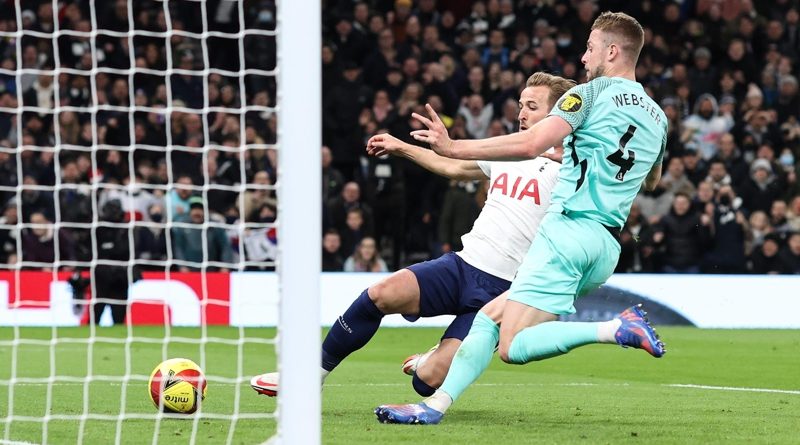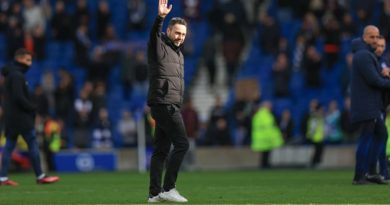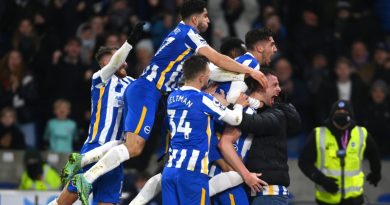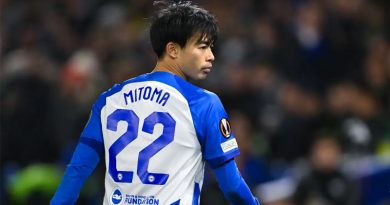A missed opportunity in the FA Cup
One of the tasks of a football manager is to field a starting XI that has the best possible chance of winning the game.
Sounds easy, right? In theory I guess it does – but it does not always seem to work out like that in practice. Let me give you a couple of examples.
In June 2020 Manchester United beat Brighton 3-0 at the Amex. United played a 4-2-3-1 system with Marcus Rashford, Mason Greenwood, Anthony Martial and Bruno Fernandes being the attacking four.
They ripped the Albion defence apart in every transition. United’s pace up front was just too much to handle.
United ended the second half of the 2019-20 season in terrific form and finished third behind league winners Liverpool and Manchester City.
It seemed Ole Gunnar Solskjaer had found the formula to compete for the title the next season. It did not work out that way.
United signed Cristiano Ronaldo in the summer of 2021 despite the aforementioned four still being on the payroll.
Solskjaer felt like he had to squeeze Ronaldo in the starting XI and in the end it cost him his job. He made the mistake of fielding the best players instead of the best team.
Let’s go a bit further back and look at the England Golden Generation for another example. In the early 2000’s, England had some of the best midfielders around.
There is not a country in the world that would not have wanted any of Steven Gerrard, Frank Lampard, Paul Scholes and David Beckham in their squad.
But play them all in one midfield? Not a good idea. Scholes often got moved out to the left and he hardly reached the same level for England as he did at Manchester United.
Gerrard and Lampard did not complement each other in any way, shape or form. Everybody knew that but Sven-Göran Eriksson insisted in playing all four. Again a case of fielding the best players rather than picking the best team.
This is how I felt at half time of Brighton’s disappointing FA Cup fourth round exit at the Tottenham Hotspur Stadium.
Graham Potter took the FA Cup seriously – but did he choose the best team to beat Spurs? I would argue he did not.
It made sense to play Marc Cucurella on the left of a back three. It worked well against Chelsea. Spurs play a narrow front three with full backs providing width on the overlap. Cucurella was chosen to neutralise the pace of Lucas Moura. So far, so good.
Lewis Dunk’s return to the starting line-up meant Adam Webster was moved to the right side of Albion’s back three, where way too often he came face-to-face with Son Heung-min
Webster is a quality defender and he has been performing well in previous weeks as part of either a back four or the central defender of the three in the absence of Dunk.
It is fait to say though that Webster is not the quickest – certainly compared to Son. Should Potter have started Joel Veltman?
Veltman seems to thrive against the likes of Wilfried Zaha and Jack Grealish, both of whom are speedy and tricky opponents. Would he therefore have fared better against Son?
Potter made amends at half time and Albion looked more balanced during the second half. The damage was done though.
By selecting a rusty Dunk and moving Webster from a position he has excelled in, Potter chose his best available players – not the best team to see off Spurs and progress in the FA Cup.
Dunk is a fantastic defender and club captain. We all know that he deserves to be in the England setup. The reason he is not is because he ran over Gareth Southgate’s cat or something.
It was however not a good idea to bring him back for his first match after recovering from injury against the best strike force in the country.
And that is why elimination against Spurs has to go down as a missed FA Cup opportunity for Brighton.
Marco Hof




